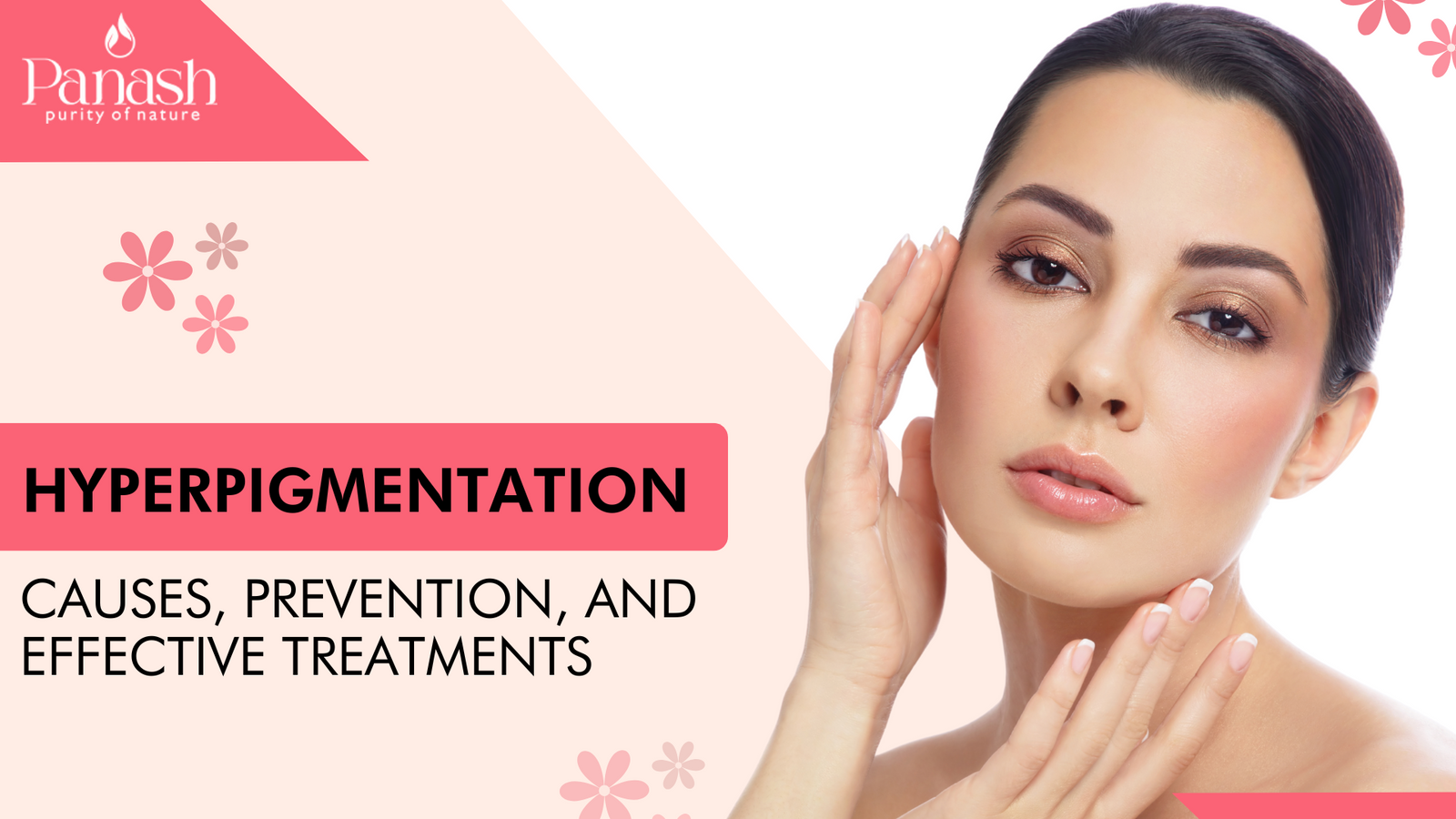Have you ever noticed dark patches or spots on your skin that don’t seem to go away? Maybe after a pimple healed, it left behind a dark mark, or perhaps you spent too much time in the sun and now have patches that are darker than the rest of your skin. This is called hyperpigmentation—a common skin condition where some areas of the skin become darker than others.
Don’t worry! Hyperpigmentation is harmless, and the good news is that it can be prevented and treated. In this blog, we’ll talk about what causes hyperpigmentation, how to keep it from happening, and the best ways to treat it.
What is Hyperpigmentation?
Hyperpigmentation happens when your skin makes too much melanin, the pigment that gives your skin its color. This extra melanin collects in certain areas, making the skin look darker. It can happen anywhere on the body, but it’s most common on the face, hands, and arms because these areas get the most sun exposure.
There are different types of hyperpigmentation, including:
- Sunspots (Age Spots or Liver Spots) – Dark spots caused by too much sun exposure over time.
- Post-Inflammatory Hyperpigmentation (PIH) – Marks left behind after a pimple, cut, or injury heals.
- Melasma – Large, dark patches on the skin, usually seen on the face, often caused by hormonal changes.
Causes of Hyperpigmentation
1. Sun Exposure
Too much time in the sun can trigger melanin production, leading to sunspots or freckles. The more sun exposure you get without protection, the more likely you are to develop dark patches on your skin. So use a good sunscreen like Niacinamide Sun Screen SPF 35
2. Hormonal Changes
Hormones can affect melanin production. Melasma, a type of hyperpigmentation, is common in pregnant women or people taking birth control pills because their hormone levels change.
3. Skin Inflammation & Acne
When your skin gets irritated from acne, eczema, or cuts, it tries to heal itself by producing more melanin. This often leaves behind dark marks, known as post-inflammatory hyperpigmentation (PIH).
4. Aging
As we age, our skin changes, and years of sun exposure can lead to dark spots. That’s why age spots are more common in older adults.
5. Medications & Medical Conditions
Certain medications, like antibiotics or chemotherapy drugs, can make your skin more sensitive to the sun, leading to hyperpigmentation. Some medical conditions, like Addison’s disease, can also cause dark patches on the skin.
How to Prevent Hyperpigmentation
While you can’t always control hormonal changes or aging, you can reduce your chances of getting hyperpigmentation by following these simple steps:
1. Wear Sunscreen Every Day
Since the sun is one of the biggest causes of dark spots, wearing sunscreen is the best way to prevent them. Use a sunscreen with SPF 30 or higher, even if it’s cloudy or you’re indoors. UV rays can still reach your skin through windows!
2. Avoid Picking at Pimples or Scratches
It might be tempting to pop a pimple or scratch a bug bite, but this can increase melanin production in the area, making it darker. Let your skin heal naturally.
3. Use Gentle Skincare Products
Harsh scrubs or strong chemicals can irritate your skin and make hyperpigmentation worse. Use mild, fragrance-free products, especially if you have sensitive skin.
4. Wear Protective Clothing
Hats, sunglasses, and long sleeves can help shield your skin from the sun. If you’re outside for a long time, try to stay in the shade as much as possible.
5. Eat a Healthy Diet
Foods rich in antioxidants, like berries, green leafy vegetables, and nuts, help protect your skin from damage. Drinking enough water also keeps your skin healthy and glowing!
Effective Treatments for Hyperpigmentation
If you already have dark spots or patches, don’t worry—there are many ways to fade hyperpigmentation. Some treatments work faster than others, but with patience and consistency, you can get clearer skin.
1. Skincare Products with Brightening Ingredients
Look for creams and serums with ingredients that help lighten dark spots:
- Vitamin C – A powerful antioxidant that brightens skin and evens out skin tone.
- Retinol – Speeds up skin cell turnover, helping new, fresh skin appear. You can use Retinol Face Serum
- Niacinamide – Reduces redness and dark spots while keeping the skin hydrated.
- Alpha Arbutin – A gentle, natural ingredient that helps fade pigmentation.
- Kojic Acid – A natural skin brightener often found in creams and serums.
2. Exfoliation to Remove Dead Skin
Regular exfoliation helps remove the top layer of dead skin cells, revealing brighter skin underneath. You can use:
- Chemical Exfoliants – Like glycolic acid or lactic acid, which gently dissolve dead skin.
- Physical Exfoliants – Like sugar scrubs or facial brushes, but be careful not to scrub too hard!
3. Dermatological Treatments
If home treatments aren’t working, a dermatologist can suggest professional treatments, such as:
- Chemical Peels – Special acids that remove the top layer of skin to reveal fresh, new skin underneath.
- Laser Therapy – Uses light to break down dark pigment and improve skin tone.
- Microdermabrasion – A deep exfoliation treatment that removes dead skin and stimulates new cell growth.
4. Natural Remedies
Some natural ingredients may help fade hyperpigmentation over time:
- Aloe Vera – Helps soothe and heal the skin while reducing dark spots.
- Turmeric – Has brightening properties that can even out skin tone.
- Lemon Juice – Contains vitamin C, but be careful—it can make your skin more sensitive to the sun! Always use sunscreen after applying it.
Final Thoughts: Clear Skin Takes Time!
Hyperpigmentation can be frustrating, but with the right care, you can fade dark spots and prevent new ones from forming. The most important thing is patience—results don’t happen overnight, but with a good skincare routine and sun protection, you’ll start seeing improvements.
Key Takeaways:
Wear sunscreen every day to prevent dark spots.
Use gentle skincare products with ingredients like Vitamin C and Retinol.
Avoid picking at pimples or scratching your skin.
Consider dermatological treatments if home remedies aren’t working.
Stay consistent—clear skin takes time!
If you’re dealing with hyperpigmentation, just know that you’re not alone. Many people experience it, and there are plenty of solutions out there to help you get that bright, even skin you want. Start with small changes today, and your skin will thank you later!
Explore Panash Wellness for more ayurvedic based products








